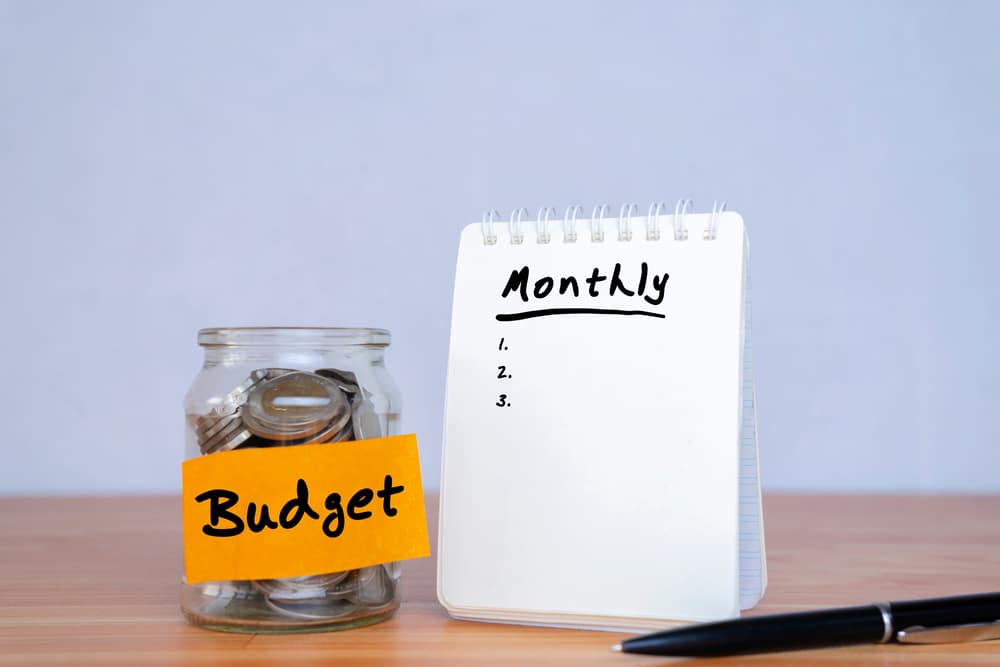Money isn’t just about numbers—it’s about habits. The way you manage your money every day plays a huge role in determining your financial health. Good financial habits aren’t just reserved for the wealthy or math geniuses—they’re achievable for anyone, including you.
The trick? Start small, stay consistent, and make these habits part of your routine. Below, we’ve shared five daily habits that can transform the way you handle your money—and they’re easier than you might think.
Whether you want to build wealth, pay off debt, or simply stop living paycheck to paycheck, these habits are your roadmap to being better with money.
1. Track Your Expenses
“Where did all my money go?” If this thought crosses your mind every month, it’s time to track your spending.
Why it matters
Tracking your expenses is like looking under the hood of your financial life—it shows you exactly where your money is going. From your rent to that $4 daily latte (yes, those add up!), tracking gives you clarity. And clarity is the first step to building financial habits that stick.
How to get started
- Download an app: Platforms like Mint or YNAB (You Need A Budget) make tracking easy—they connect to your bank accounts and automatically categorize expenses.
- Use a spreadsheet: Prefer going old school? Create a basic Excel or Google Sheet to manually track your spending.
- Review receipts: Start saving receipts or jotting down every penny you spend. It’s tedious at first, but it paints a clear picture of your money habits.
By tracking even small expenses, you’ll start identifying patterns—like subscriptions you forgot about or that online shopping spree that quietly ate into your budget. Awareness is power.

Pro tip
Set aside just 5 minutes every night to review your spending for the day. Take a moment to look at what you’ve spent, whether it’s on necessities, small indulgences, or unplanned purchases. This quick but powerful habit helps you stay mindful of your financial habits, identify patterns, and ensure you’re sticking to your budget. Over time, it will give you greater control over your money and help you make more intentional spending decisions.
2. Create (and Stick to) a Budget
Here’s the truth about money management—it’s impossible to nail down your finances without a budget. But don’t think of budgeting as restrictive; think of it as empowering.
Why it matters
A budget is your game plan for your money. It helps you prioritize, save, and avoid overspending. When you give every dollar a purpose, it’s easier to say yes to what matters (like planning for a dream vacation) and no to what doesn’t (like impulse buys).
How to get started
- Choose a method: Popular budgeting methods include the 50/30/20 rule (50% needs, 30% wants, 20% savings) or zero-based budgeting, where every dollar is allocated.
- Be realistic: Your budget should reflect your life, not some Pinterest-perfect ideal.
- Track progress: Compare your actual spending against your budget weekly.

Pro tip
Set fun “spending goals” within your budget to make saving more enjoyable. For example, you could allocate $50 a month for guilt-free treats like dining out with friends, buying that trendy coffee mug you’ve been eyeing, or indulging in a new book or small gadget. These small luxuries can bring joy without derailing your finances. By giving yourself permission to spend on things that make you happy, you’ll find it much easier to stay motivated and stick to your budget over the long term. After all, budgeting doesn’t have to mean sacrificing all the fun!
3. Set Financial Goals
Dreaming about buying a house? Traveling the world? Paying off debt? Goals like these don’t just magically happen—they require planning and focus.
Why it matters
Financial goals give your money direction—they’re the “why” behind all the effort. Without goals, it’s easy to slip into spending without purpose.
How to get started
- Start with SMART goals: Make them Specific, Measurable, Achievable, Relevant, and Time-bound. Example? “Save $5,000 for a vacation by next July.”
- Divide them into short-term and long-term:
- Short-term: Save $1,000 for a rainy-day fund.
- Long-term: Secure a 10% down payment for your dream home in 5 years.
- Visualize your goals: Whether it’s through sticky notes, a Pinterest board, or a trackers app, seeing your goals daily will keep you motivated.

Pro tip
Take a few minutes every morning to remind yourself of your financial goals and why they matter to you. Whether it’s saving for a dream vacation, paying off debt, or building an emergency fund, keeping those goals top of mind can help you stay focused. It’ll make saying “no” to that unnecessary online shopping cart or impulse purchase feel less painful and more purposeful, knowing you’re working towards something bigger.
4. Automate Your Savings
Saving money shouldn’t be hard—it should be automatic. Why? Because automation takes human error out of the equation and makes saving effortless.
Why it matters
When saving is automatic, you won’t be tempted to spend the money instead. Plus, it creates consistency, which is key to building wealth over time.
How to get started
- Set up automatic transfers: Dedicate a portion of each paycheck to go straight to your savings account.
- Create separate accounts: Open accounts for different goals (e.g., vacation fund, emergency fund) to stay organized.
- Use tools: Apps like Qapital or Acorns round up your purchases and save the spare change—it may seem small, but those coins add up!

Pro tip
Start small—automate just $10 or $20 each week into your savings account. It’s an easy way to build a habit without feeling overwhelmed. Over time, as you get used to setting money aside and notice your savings beginning to grow, you can gradually increase the amount. Even small steps can lead to significant progress toward your financial goals!
5. Review Your Finances Regularly
Just like we check our phones a million times a day, reviewing your finances should become second nature. Build checkpoints into your routine to reflect, adjust, and refocus on your goals.
Why it matters
Your financial situation isn’t static—it changes. Maybe you got a raise, your rent went up, or you discovered a new expense. Regular reviews ensure your money works for your current life, not an outdated plan.
How to get started
- Daily check-ins: Peek at your bank balance every morning—it takes less than 60 seconds.
- Weekly reviews: Spend 10–15 minutes each weekend analyzing your spending and comparing it to your budget.
- Monthly adjustments: On the last day of the month, decide if you need to tweak your budget or goals for the next month.

Pro tip
Make finance review time fun and enjoyable! Start by brewing your favorite cup of tea or coffee and turn it into a moment of self-care. Set up a cozy, distraction-free space where you feel comfortable and relaxed. Pairing a typically dull task with something you genuinely enjoy, like sipping a warm drink or playing soft background music, can create positive reinforcement. Over time, this small ritual can help you look forward to getting your finances in order, transforming it from a chore into a rewarding part of your routine.
Take Control of Your Finances Today
Improving your relationship with money doesn’t happen overnight, but by adding these five habits to your daily routine, you’ll notice a real change. Tracking your expenses, budgeting, setting goals, automating savings, and reviewing your finances regularly are simple yet powerful habits that empower you to take charge.
You don’t need to be perfect, but consistency is key. Start small, stay motivated, and know that every small step you take today brings you closer to financial freedom.
Your challenge: Incorporate one habit into your life this week. See how it feels. Then add another next week. The results might just surprise you.
Here’s to a better, more confident you—with money that works for you, not against you.
